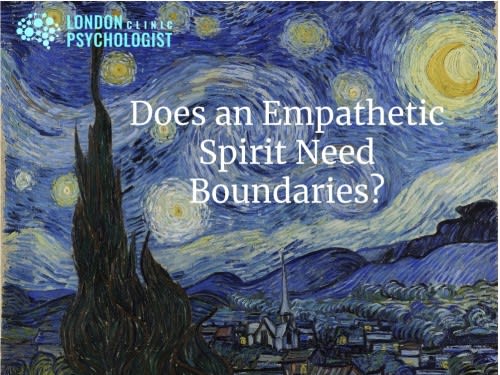The Resiliant Empath

posted 16th October 2023
Empathy: Striking the Right Balance
The term "resilient empath" is not a recognised psychological term or diagnosis. Instead, it appears to be a term that has been coined and popularised in media or self-help contexts to describe individuals who are highly empathetic and sensitive to the emotions of others while also demonstrating resilience in coping with the emotional challenges that come with this sensitivity.
In psychological and clinical settings, terms like "empathy," "empathetic," and "empath" are used to describe individuals who have a heightened ability to understand and share the feelings of others. Empathy is a well-established psychological concept, and it plays a significant role in interpersonal relationships and emotional intelligence.
Empathy is often regarded as one of the most profound human qualities. It allows us to connect with others on a deep emotional level, offering support and understanding during their times of need. However, like any virtue, empathy can have its downsides when taken to extremes. In this blog, we'll explore the importance of striking the right balance with empathy, how to recognise when it becomes overwhelming, and practical strategies to maintain a healthy empathetic connection with others.
The Downside of Overwhelming Empathy:
Emotional Burnout: When empathy becomes overwhelming, it can lead to emotional burnout. Constantly absorbing the emotional burdens of others can leave you physically and mentally drained.
Neglecting Self-Care: Overly empathetic individuals may prioritise the needs of others to the detriment of their own well-being, neglecting self-care and personal boundaries.
Anxiety and Stress: Excessive empathy can lead to heightened anxiety and stress levels, especially if you are constantly worried about the feelings and experiences of those around you.
Loss of Objectivity: While empathy is crucial for understanding others, too much of it can cloud your judgment and hinder your ability to make rational decisions.
It's essential to recognise the signs that your empathy may be reaching unhealthy levels. These signs can include; feeling emotionally drained after interacting with others, neglecting your own needs, and constantly worrying about the problems and emotions of those around you. You will also find it difficult to set boundaries or say "no" when needed.
Maintaining a healthy balance with empathy is crucial for your well-being and the well-being of others. Here are some strategies to help you strike the right balance:
Practice Self-Care: Prioritise self-care routines that replenish your emotional reserves, such as exercise, meditation, and hobbies.
Set Boundaries: Learn to set healthy boundaries in your relationships. It's okay to say "no" when you need to.
Seek Support: Reach out to friends, family, or a therapist for support and guidance when dealing with overwhelming emotions.
Develop Emotional Awareness: Learn to differentiate between your emotions and those of others. Mindfulness techniques can help you gain better emotional awareness.
Practice Empathetic Listening: Instead of taking on the emotional burden of others, practice empathetic listening. Offer a listening ear without feeling responsible for solving their problems.
Empathy is a beautiful and valuable human trait, but it's essential to strike the right balance to maintain your emotional well-being. By recognising the signs of overwhelming empathy and implementing practical strategies, you can continue to connect with others in a healthy and sustainable way.



